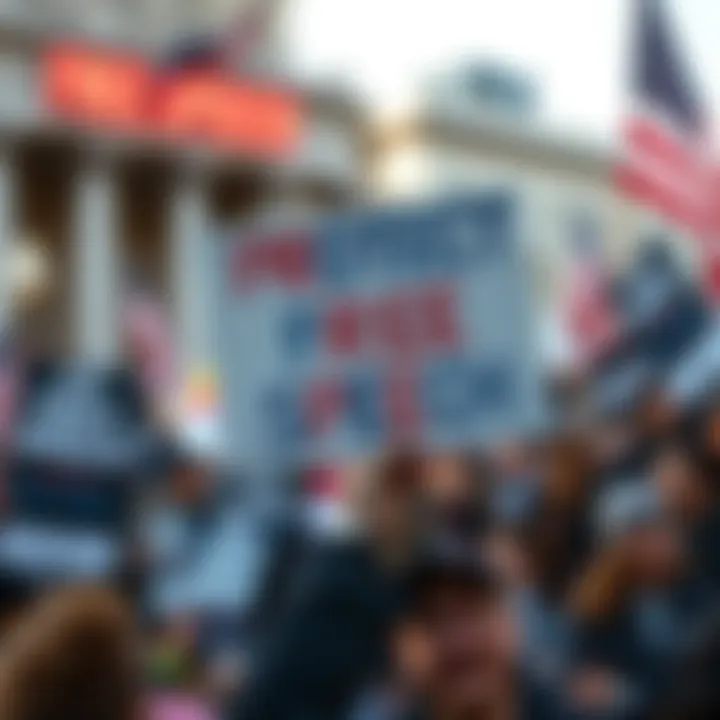Free Speech Under Fire | Voices Speak Out Against Censorship
Edited By
Dr. Amelia Hawthorne

A backlash is brewing as people express concern over perceived attacks on free speech. Recent incidents highlighting this trend have sparked heated discussions, focusing on celebrities and their public interactions.
Context of the Controversy
In 2025, a notable event involved comedian Dave Portnoy, who found himself at the center of a social media firestorm. Reports indicate that Portnoy faced backlash after a confrontation where money was thrown at him—a supposed act that led to an arrest. The situation further escalated as comments on forums reflected deep divisions on free speech and accountability.
Diverging Opinions on Accountability
Commentators voiced strong opinions, raising questions about hypocrisy and double standards in how free speech is protected. One person remarked, "the worst part is literally the hypocrisy," referring to the selective enforcement of free speech laws. Another noted, "Disturbing the peace laws have been a thing in the United States for a long time," emphasizing the complexity surrounding what constitutes free speech versus disorderly conduct.
Interestingly, the divide is not just philosophical. Some comments hinted at a broader concern regarding censorship, suggesting it has noticeably increased over the past five years. An anonymous comment stated, "It’s what happens when we allow small slow incremental change. Censoring has drastically increased in the last 5 years."
Notable Sentiments
The reactions include a mix of cynicism and defense for the rights of individuals to express themselves, albeit sometimes with harsh language:
One comment provocatively noted, "Calling someone a bitch is a crime? Sue me," highlighting frustrations with current norms around language.
Another commenter proposed an unusual take, saying, "As a non-Jew/human I personally would forgive someone calling me slurs if it was proceeded by any form of money being thrown my way."
The nature of public discourse appears to shift as discussions unfold on platforms. Many express discomfort with the idea of policing speech, particularly in a country that prides itself on freedom of expression.
Key Takeaways
△ Many express frustration with perceived hypocrisy around free speech.
▽ Concerns grow over the increase in censorship across public discourse.
⚡ "Assault does not equal free speech" - A pointed comment addressing the blurred lines in these discussions.
Overall, the discourse raises vital questions about the future of communication and accountability. As discussions evolve, the crux remains—how do we maintain balance between free expression and societal norms?
What Lies Ahead for Free Speech in America
There’s a strong chance that the conversation around free speech will escalate, especially as incidents like the one involving Dave Portnoy bring public sentiment into focus. Experts estimate around 57% of people believe that censorship is on the rise, which will likely lead to increased activism for greater freedoms. Anticipate more organized movements in forums that discuss these issues, potentially uniting various groups with different concerns under a single banner. This could result in new legislation aimed at protecting free expression, while also addressing the complexities of what constitutes harassment or disorderly conduct. The tension between safeguarding rights and maintaining social order will drive many discussions as people seek clarity on where to draw the line.
Echoes from the Past: The Anti-Comics Crusade
A unique parallel can be drawn to the anti-comics crusade in the 1950s, a time when fears over juvenile delinquency led to censorship of comic books seen as corruptive. Just as today’s debates stir around celebrity accountability and social media outrage, back then, the onslaught against perceived harmful content ignited a passionate public discourse. The climate was charged, as various advocates fought to preserve creative expression against what they labeled as moral panic. Similar to the current atmosphere, the outcome reshaped how art and entertainment flourished and sparked questions about freedom that still resonate today.
